
Pissouri: Cyprus' Hidden Gem by the Sea
Nestled on the southern coast of Cyprus, Pissouri is a charming village that promises a serene and picturesque escape. This delightful town is split into two parts: Pissouri Village and Pissouri Bay. Each offers a unique experience, blending traditional Cypriot culture with stunning natural beauty. Pissouri Village is perched on a hillside, providing breathtaking views of the Mediterranean Sea. Strolling through its narrow, cobbled streets, you'll find traditional stone houses, quaint tavernas, and vibrant bougainvillaea. The village square is the heart of Pissouri, where locals and visitors gather for coffee, conversation, and the occasional folk music performance. Don't miss the chance to visit the village's beautiful church, with its intricate frescoes and serene atmosphere. Pissouri Bay, on the other hand, is a haven for beach lovers. The sandy beach is perfect for sunbathing, swimming, and water sports. The clear, turquoise waters are inviting, and the surrounding cliffs provide a dramatic backdrop. Along the shoreline, you'll find a variety of restaurants and cafes serving delicious Cypriot cuisine, from fresh seafood to traditional meze. Whether you're looking to relax on the beach, explore the local culture, or indulge in some adventure, Pissouri has something for everyone.
Local tips in Pissouri
- Visit Pissouri Village in the early evening to experience the local life and enjoy a meal in the village square.
- Bring comfortable walking shoes for exploring the cobbled streets and hillside paths.
- Try the local wine; Pissouri is known for its vineyards and offers some excellent varieties.
- Rent a car to explore nearby attractions like the ancient city of Kourion and Aphrodite's Rock.
- Check the local calendar for cultural events and festivals, which often include traditional music, dance, and food.
Pissouri: Cyprus' Hidden Gem by the Sea
Nestled on the southern coast of Cyprus, Pissouri is a charming village that promises a serene and picturesque escape. This delightful town is split into two parts: Pissouri Village and Pissouri Bay. Each offers a unique experience, blending traditional Cypriot culture with stunning natural beauty. Pissouri Village is perched on a hillside, providing breathtaking views of the Mediterranean Sea. Strolling through its narrow, cobbled streets, you'll find traditional stone houses, quaint tavernas, and vibrant bougainvillaea. The village square is the heart of Pissouri, where locals and visitors gather for coffee, conversation, and the occasional folk music performance. Don't miss the chance to visit the village's beautiful church, with its intricate frescoes and serene atmosphere. Pissouri Bay, on the other hand, is a haven for beach lovers. The sandy beach is perfect for sunbathing, swimming, and water sports. The clear, turquoise waters are inviting, and the surrounding cliffs provide a dramatic backdrop. Along the shoreline, you'll find a variety of restaurants and cafes serving delicious Cypriot cuisine, from fresh seafood to traditional meze. Whether you're looking to relax on the beach, explore the local culture, or indulge in some adventure, Pissouri has something for everyone.
When is the best time to go to Pissouri?
Iconic landmarks you can’t miss
Pissouri Beach - Blue Flag
Experience the beauty of Pissouri Beach in Cyprus, where golden sands meet crystal-clear waters, perfect for relaxation and adventure.
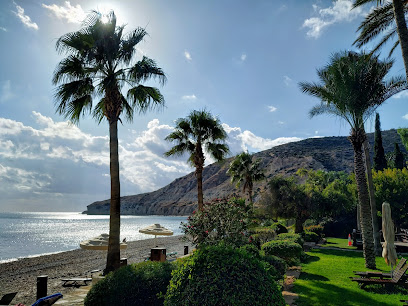
O'Vrakas Taverna Pissouri
Discover the authentic taste of traditional Greek cuisine at O'Vrakas Taverna in the charming village of Pissouri, Cyprus.
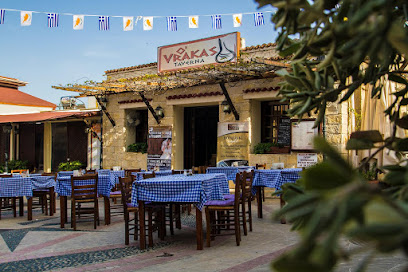
Hylatio Tourist Village
Discover the enchanting Hylatio Tourist Village in Pissouri, Cyprus, where relaxation meets adventure in a breathtaking coastal setting.

Kastro Restaurant
Experience the rich flavors of Greek and Mediterranean cuisine at Kastro Restaurant in Pissouri, Cyprus, where every meal is a celebration of local ingredients.
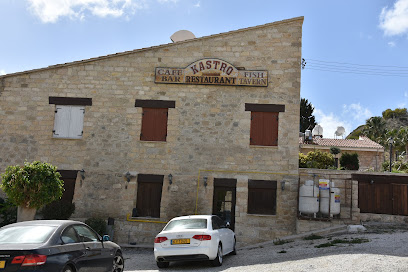
Cyprus Diving Adventures
Discover the underwater wonders of Cyprus with Cyprus Diving Adventures – the premier diving center in Pissouri for all skill levels.
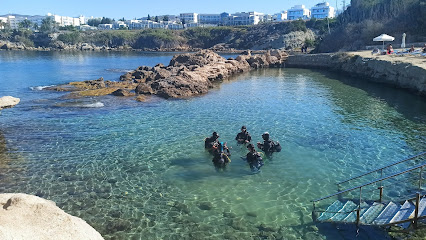
Cape Aspro Trail
Explore the scenic Cape Aspro Trail in Pissouri, Cyprus, known for its stunning coastal views and diverse hiking experiences amidst nature's beauty.
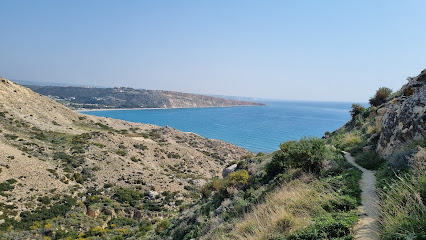
Genesis Aphrodite’s Trail
Discover the natural beauty and historical significance of Genesis Aphrodite’s Trail in Pissouri, Cyprus, a must-visit hiking destination for nature lovers.
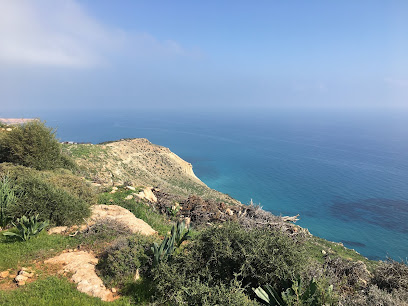
Pissouri Bay
Experience the tranquil beauty of Pissouri Bay in Cyprus, where pristine beaches meet adventure and delicious local cuisine.
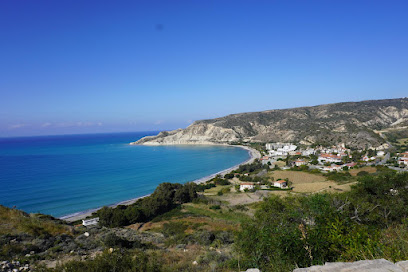
Pissouri Bay Divers
Explore the underwater wonders of Cyprus at Pissouri Bay Divers, where adventure meets expert guidance in a breathtaking coastal setting.
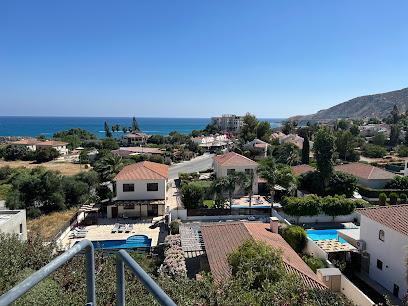
Himonas Apartments
Experience the tranquility of Pissouri Bay at Himonas Apartments, your perfect holiday retreat with stunning views and modern comforts.
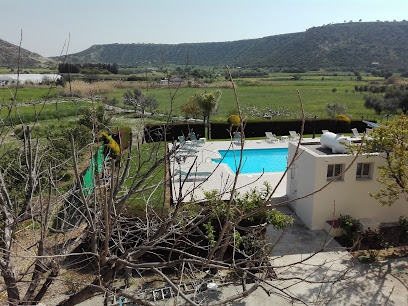
Xenios Water Sports Pissouri Bay
Explore thrilling water sports adventures at Xenios Water Sports in Pissouri Bay, Cyprus - perfect for all beach lovers and adventure seekers.
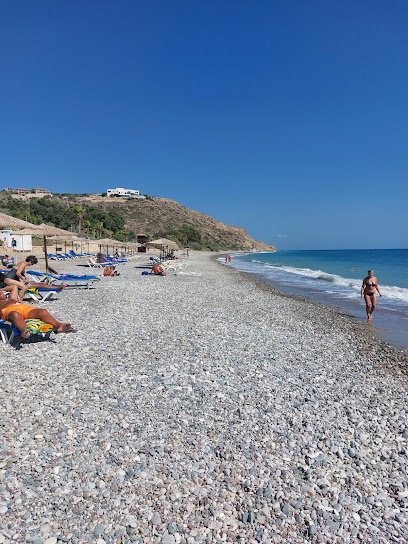
Cape Aspro
Explore the breathtaking landscapes of Cape Aspro, where stunning cliffs meet crystal-clear waters in Pissouri, Cyprus.
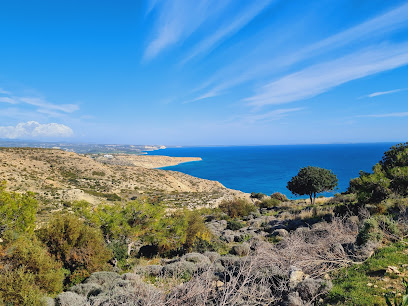
Apostolos Andreas Church
Discover the tranquility and cultural richness of Apostolos Andreas Church in Pissouri, Cyprus, a must-visit for spiritual seekers and culture enthusiasts.
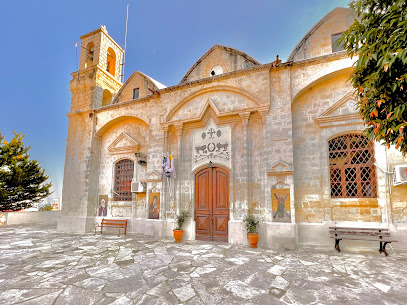
Pissouri Beach
Explore the serene beauty of Pissouri Beach, a top destination in Cyprus for sun, sea, and unforgettable experiences amidst stunning Mediterranean views.
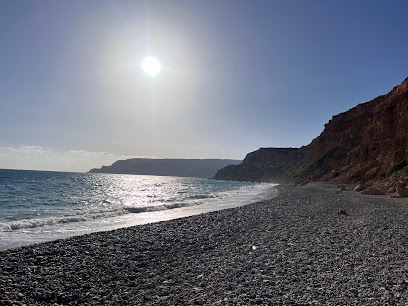
Pissouri Square Fountain
Explore the enchanting Pissouri Square Fountain, a lively hub in Cyprus where culture, cuisine, and charm come together.
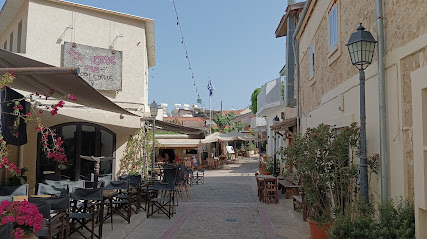
Unmissable attractions to see
Petra tou Romiou (Aphrodite's Rock)
Discover the mythical birthplace of Aphrodite at Petra tou Romiou, a stunning Cyprus landmark steeped in ancient legends and natural beauty.
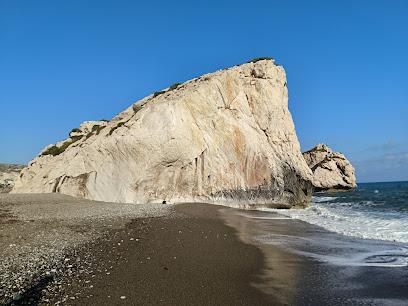
Archaeological Site of the Tombs of the Kings
Explore the ancient Tombs of the Kings in Paphos, a UNESCO World Heritage Site showcasing the grandeur of Cyprus's aristocratic past.
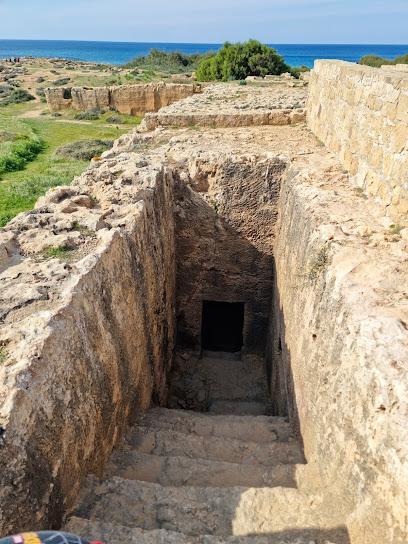
Limassol Marina
Experience luxury and leisure at Limassol Marina, a premier Mediterranean destination with world-class yachting, dining, and shopping.
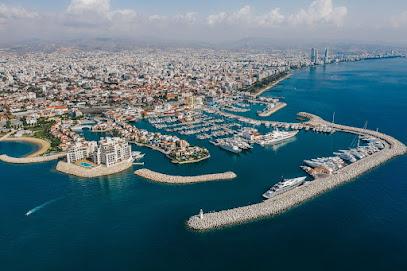
Kykkos Monastery
Discover Cyprus's spiritual heart at Kykkos Monastery, a mountaintop haven of Byzantine art, rich history, and breathtaking views.
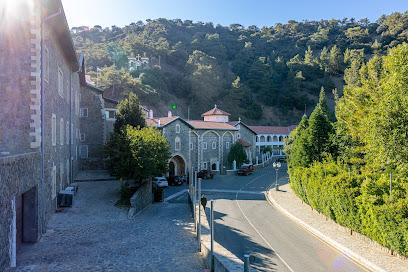
The Edro III Shipwreck
A hauntingly beautiful shipwreck in Peyia, Cyprus, offering stunning views and a glimpse into maritime history, near the Sea Caves.

Pafos Zoo
Discover over 1,200 animals from around the world at Pafos Zoo, an unforgettable wildlife adventure for the whole family in Cyprus.

Paphos Aphrodite Waterpark
Dive into a world of aquatic thrills and relaxation at Paphos Aphrodite Waterpark, the largest and most exciting waterpark in the Paphos region.
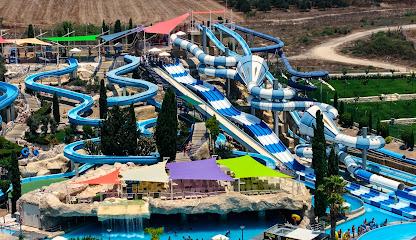
Limassol Castle - Cyprus Medieval Museum
Explore Limassol Castle, a majestic medieval fortress in Cyprus, rich in history and cultural artifacts, offering stunning views and a captivating museum experience.
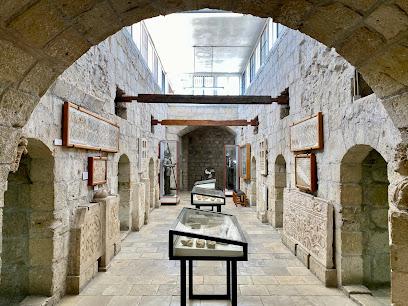
Paphos Castle
Explore Paphos Castle: a historic fortress shaped by Byzantines, Crusaders, Venetians, and Ottomans, offering stunning harbor views.
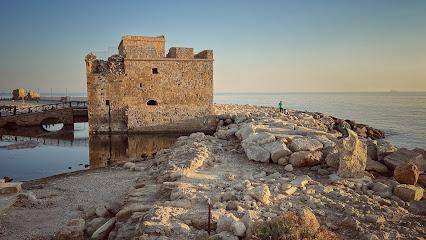
Adonis Baths Waterfalls
Discover the mythical Adonis Baths Waterfalls in Paphos: swim in rejuvenating waters and explore ancient legends amidst stunning natural beauty.
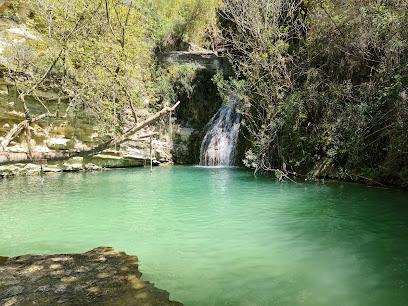
Avakas Gorge Nature Trail
Hike through a stunning limestone canyon carved by the Avgas River in Cyprus, featuring unique geological formations and diverse plant life.
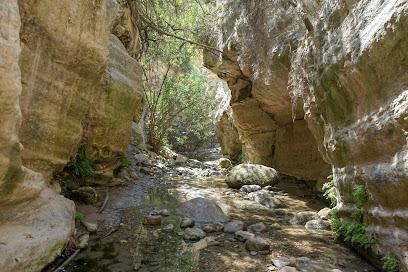
Kolossi Castle
Explore a medieval Crusader castle, sample Commandaria wine, and step back in time at Kolossi, near Limassol, Cyprus.
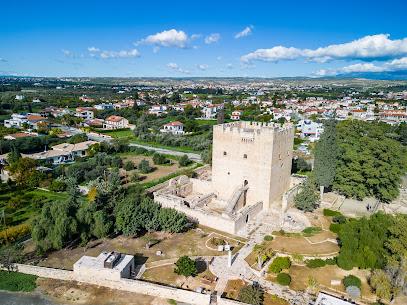
Υδροπάρκο Φασουρίου Watermania
Experience a thrilling day at Fasouri Watermania, Cyprus's largest water park, with over 30 slides, a wave pool, and a Polynesian-themed paradise.
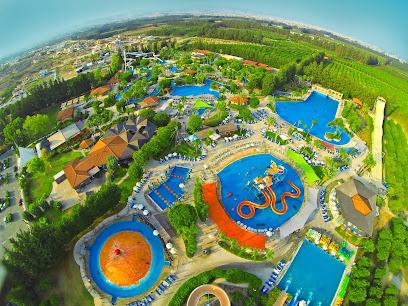
Timios Stavros Monastery
Discover the spiritual and historical significance of Cyprus at the Timios Stavros Monastery in the charming village of Omodos.
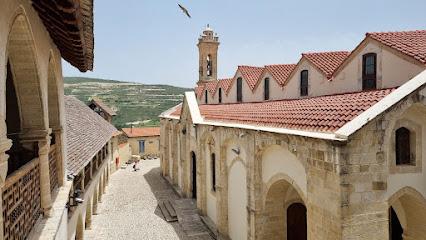
Kalidonia Waterfall
Escape to the Troodos Mountains and discover the refreshing beauty of Kalidonia Waterfall, one of Cyprus's tallest and most scenic natural wonders.
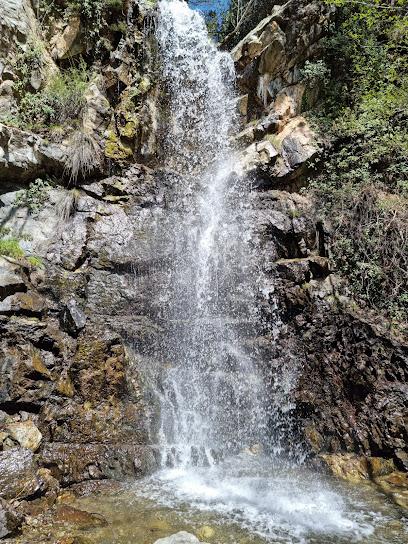
Essential places to dine
Columbia Beach Resort
Discover luxury and tranquility at Columbia Beach Resort in beautiful Pissouri Bay, Cyprus - your ultimate escape to paradise.
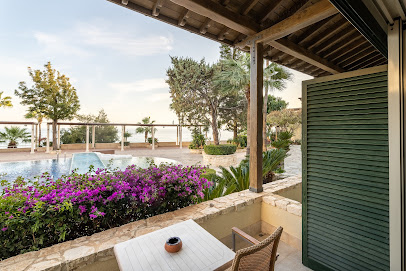
Captains Bay
Experience authentic Mediterranean cuisine with stunning sea views at Captains Bay in Pissouri Beach.
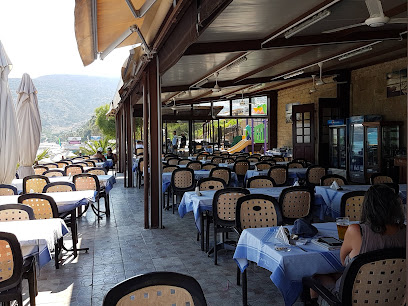
Melanda Beach Restaurant (Tsiolos)
Discover exquisite Cypriot flavors at Melanda Beach Restaurant while enjoying breathtaking Mediterranean views in Avdimou.
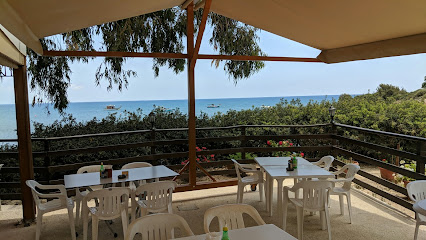
O'Vrakas Taverna Pissouri
Experience authentic Greek cuisine at O'Vrakas Taverna in Pissouri—where traditional flavors meet warm hospitality.
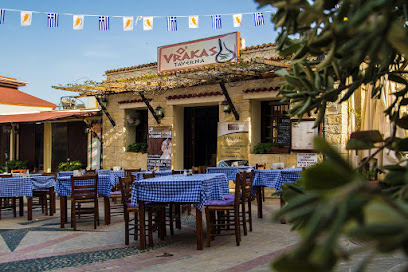
The Bunch of Grapes Restaurant
Discover authentic Greek and Mediterranean cuisine at The Bunch of Grapes Restaurant in Pissouri - where every dish tells a story.

Yialos Tavern
Discover authentic Cypriot flavors at Yialos Tavern in Pissouri - where every meal is a seaside celebration.
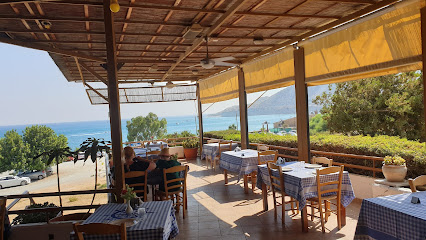
Steakhouse By Michael
Discover exquisite flavors at Steakhouse By Michael - where every bite is a celebration of culinary excellence in Pissouri, Cyprus.
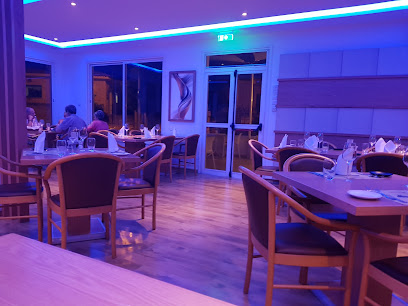
The Vineleaf Tavern
Experience authentic Cypriot flavors at The Vineleaf Tavern in Pissouri - where tradition meets taste amidst stunning landscapes.
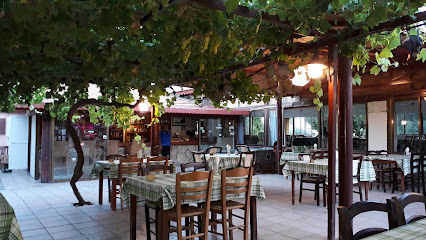
Hideaway Restaurant
Discover authentic Greek and Mediterranean cuisine at Hideaway Restaurant in Pissouri – where every meal is a celebration of flavor and tradition.
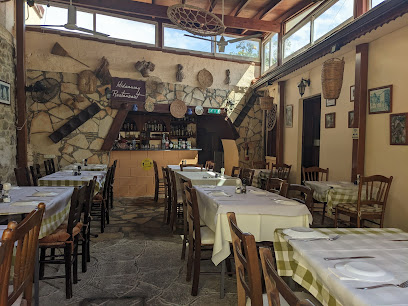
Kastro Restaurant
Discover Kastro Restaurant in Pissouri: where authentic Greek flavors meet stunning views in a cozy Mediterranean setting.
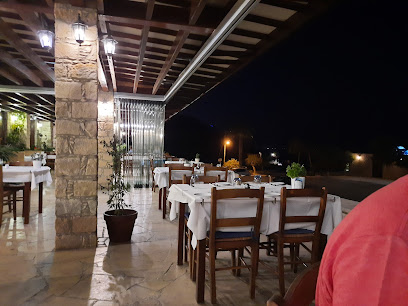
Pizza Venetto
Discover the authentic taste of Italy at Pizza Venetto in Pissouri - where every slice tells a story.
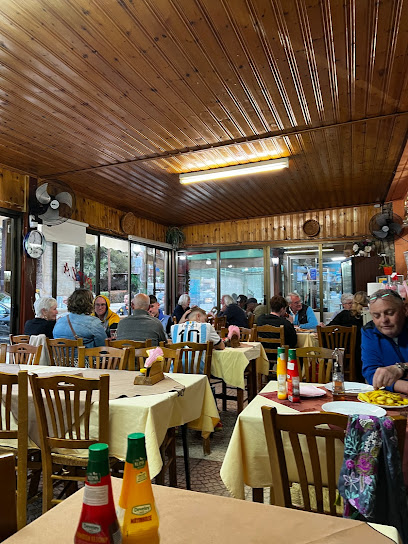
Two Friends Tavern
Discover the heart of Cypriot cuisine at Two Friends Tavern in Pissouri—where tradition meets taste in every bite.
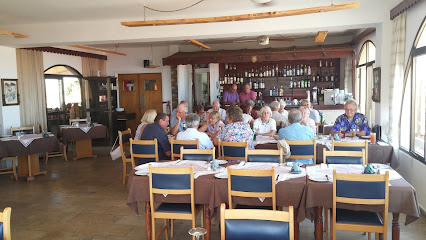
Hani Restaurant Pissouri
Discover authentic Mediterranean flavors at Hani Restaurant in Pissouri - where tradition meets taste!
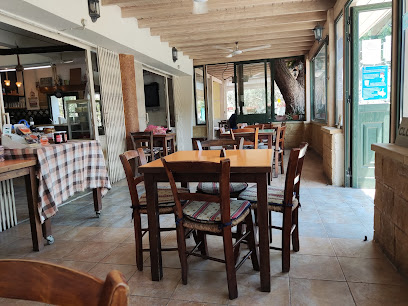
Pissouri Bay Cafe
Discover the charm of Pissouri Bay Cafe - where brunch meets breathtaking Mediterranean views in Cyprus.
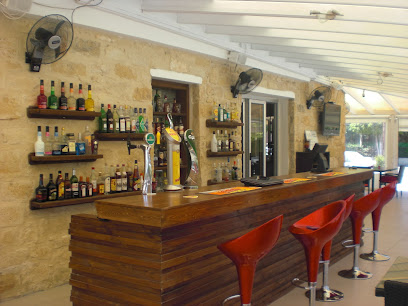
Perry's Beach Restaurant
Experience authentic Cypriot cuisine with stunning views at Perry's Beach Restaurant in Pissouri Bay.
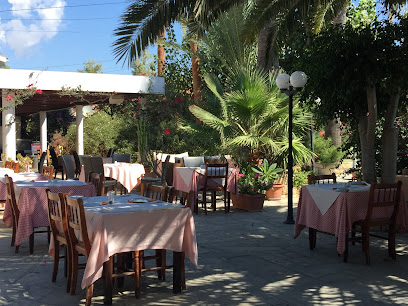
Markets, malls and hidden boutiques
Jumbo
Explore Jumbo, Limassol's vibrant shopping mall offering a diverse range of toys, home goods, and unique gifts for all ages.
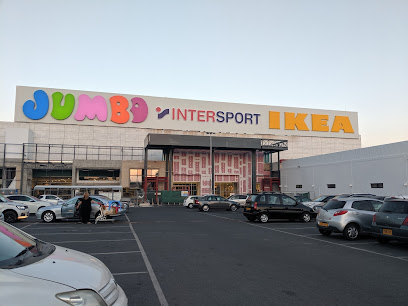
Hideaway Restaurant
Discover the authentic taste of Greece at Hideaway Restaurant, Pissouri's must-visit culinary destination for Mediterranean delights.
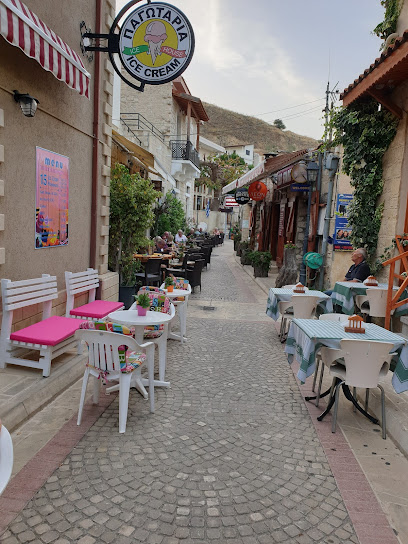
Panorama Lounge
Experience stunning views and refreshing beverages at Panorama Lounge in Pissouri, Cyprus. A perfect retreat for relaxation and socializing.
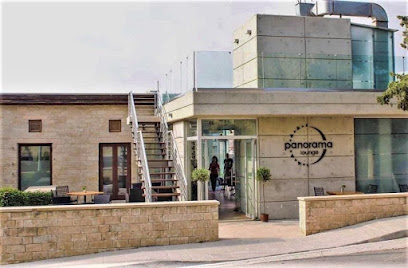
Papantoniou Supermarket (Pissouri)
Explore the vibrant flavors of Cyprus at Papantoniou Supermarket, your go-to destination for fresh produce, local meats, and delicious baked goods.
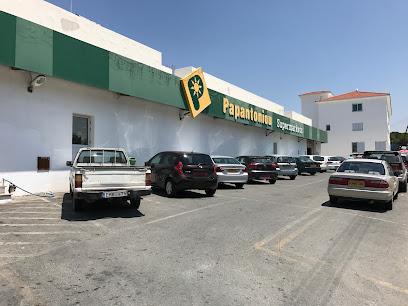
Delizie Complex
Discover Delizie Complex in Pissouri, a unique café offering delightful treats, beauty services, and a welcoming atmosphere for tourists in Cyprus.
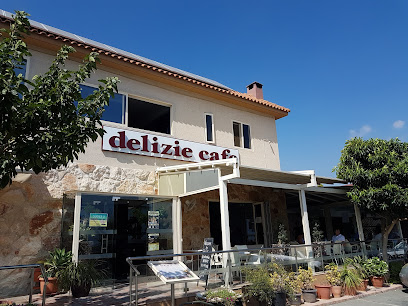
Cyprus Diving Adventures
Dive into the azure waters of Cyprus with Cyprus Diving Adventures, where unforgettable underwater experiences await for divers of all levels.
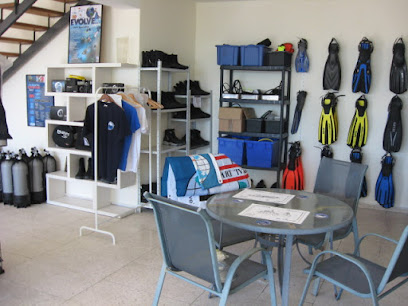
Cape Aspro Trail
Explore the breathtaking Cape Aspro Trail in Cyprus, where stunning coastal views and natural beauty await every adventurer.
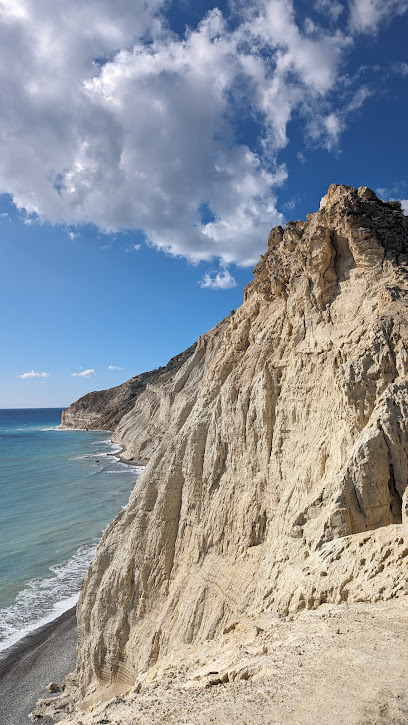
Pissouri Bay Divers
Explore the stunning underwater world of Cyprus with Pissouri Bay Divers, your premier diving center in Pissouri Bay.
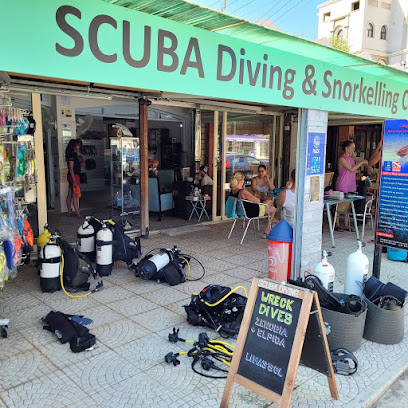
Himonas Apartments
Discover the beauty of Cyprus at Himonas Apartments, a cozy holiday retreat in Pissouri Bay with stunning sea views and modern comforts.

Xenios Water Sports Pissouri Bay
Experience the thrill of water sports at Xenios Water Sports in Pissouri Bay, Cyprus - where adventure meets stunning natural beauty.
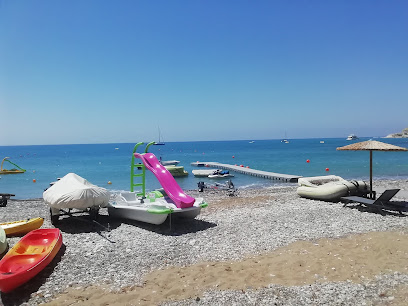
Joanna Supermarket
Shop for local groceries and unique souvenirs at Joanna Supermarket in Pissouri, Cyprus, blending convenience with cultural treasures.
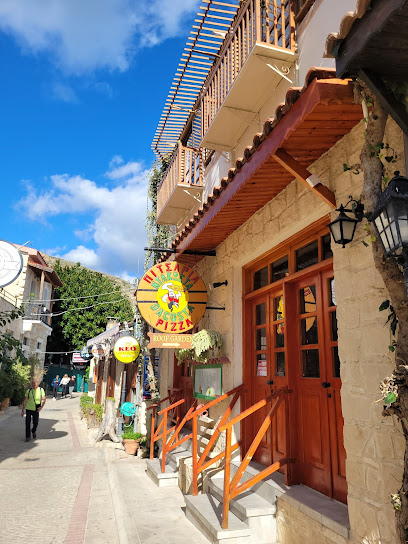
Odyssey Coffee
Discover the rich flavors of Cyprus at Odyssey Coffee, where every cup is a journey through local traditions and exceptional brews.
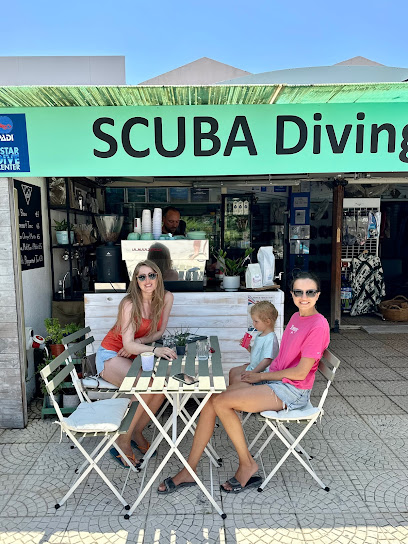
Kyriacos Pharmacy
Discover Kyriacos Pharmacy in Pissouri for all your health needs while enjoying the beautiful landscapes of Cyprus.
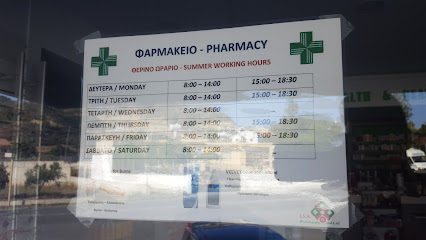
Andros Supermarket
Discover the local flavors and essentials at Andros Supermarket in Pissouri, your convenient shopping destination in Cyprus.
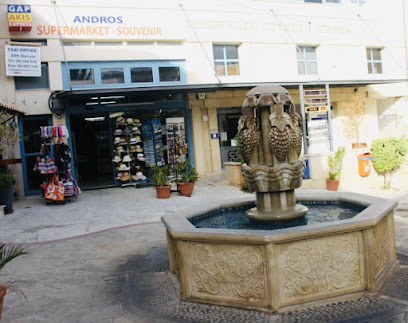
Foutas Family Farm - Fresh fruit and Vegetables
Explore the vibrant flavors of Cyprus at Foutas Family Farm, where fresh fruits and vegetables await your discovery in Pissouri.
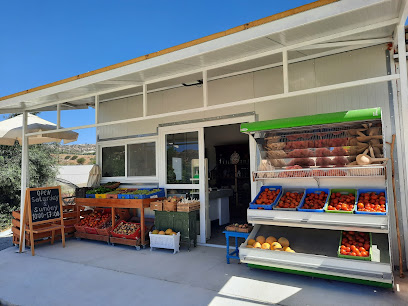
Essential bars & hidden hideouts
The Bunch of Grapes Restaurant
Experience authentic Greek and Mediterranean cuisine at The Bunch of Grapes Restaurant nestled in the charming village of Pissouri, Cyprus.

Yialos Tavern
Experience authentic Cypriot cuisine at Yialos Tavern, where fresh seafood meets breathtaking views of the Mediterranean in Pissouri.
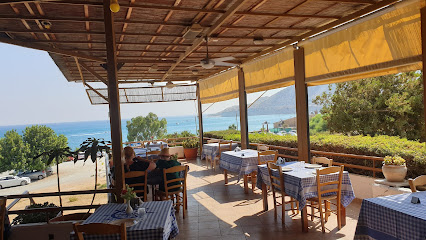
Steakhouse By Michael
Experience culinary excellence at Steakhouse By Michael, where every steak is a masterpiece and every meal is a celebration.
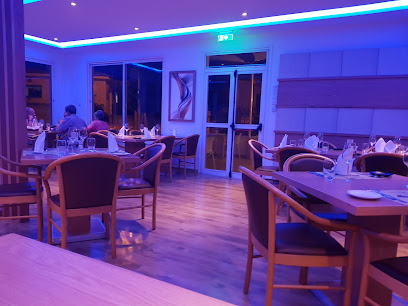
The Vineleaf Tavern
Experience authentic Cypriot cuisine at The Vineleaf Tavern in Pissouri, where local flavors meet warm hospitality in a charming setting.
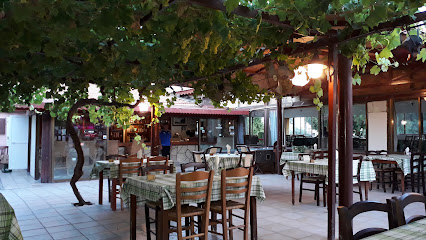
Hideaway Restaurant
Discover the authentic flavors of Greece and the Mediterranean at Hideaway Restaurant in Pissouri, Cyprus, where culinary delights meet warm hospitality.
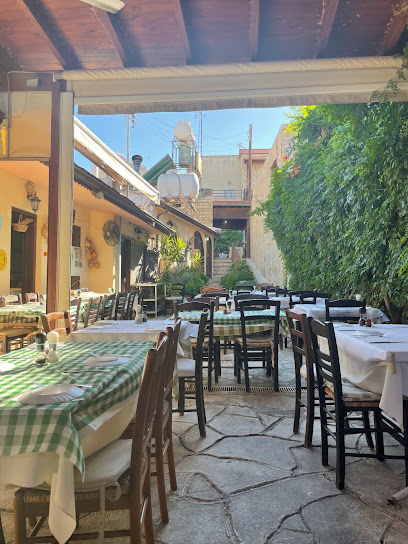
Panorama Lounge
Discover the perfect blend of relaxation and local culture at Panorama Lounge in Pissouri, Cyprus. Enjoy stunning views and delightful drinks.
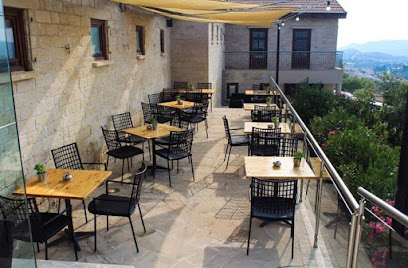
Two Friends Tavern
Discover the flavors of Cyprus at Two Friends Tavern, a cozy restaurant in Pissouri offering authentic local dishes and a warm atmosphere.
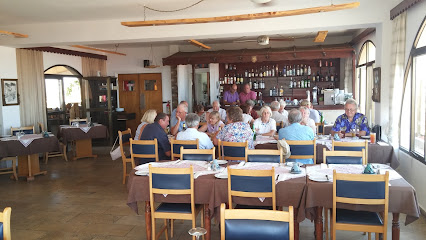
Pissouri Bay Cafe
Enjoy a delightful brunch experience with stunning views at Pissouri Bay Cafe, the perfect spot for tourists exploring Cyprus.
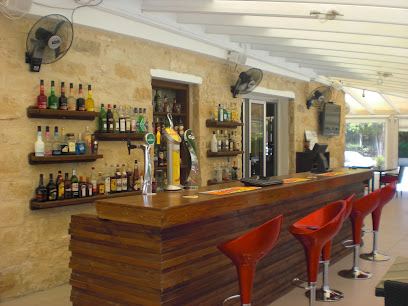
Perry's Beach Restaurant
Experience the taste of Cyprus at Perry's Beach Restaurant, where fresh seafood meets breathtaking coastal views in Pissouri Bay.
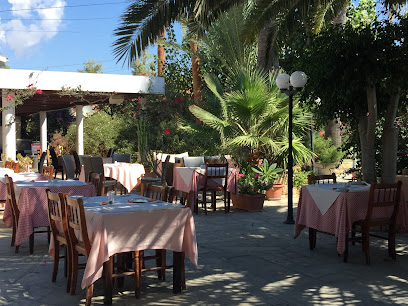
Platea Tavern
Discover the flavors of Cyprus at Platea Tavern in Pissouri, where authentic cuisine meets warm hospitality in a charming setting.
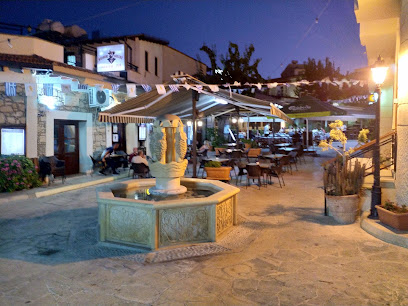
The Baytree Bar
Experience the finest of Pissouri at The Baytree Bar - a delightful pub offering local cuisine and refreshing beverages in a vibrant atmosphere.
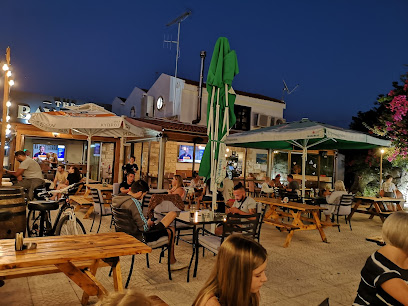
Pissouriana Restaurant & Apts
Discover the rich flavors of Cyprus at Pissouriana Restaurant & Apts, where authentic cuisine and stunning views create an unforgettable dining experience.
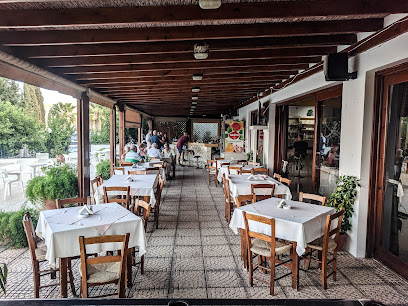
Sparti Bar
Discover the vibrant Sparti Bar in Pissouri, Cyprus, where refreshing drinks and a lively atmosphere await every visitor.
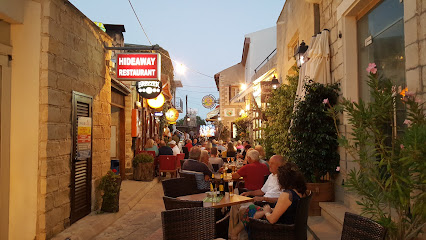
Iron Horse Bar
Discover the lively Iron Horse Bar in Pissouri, where great drinks and a friendly atmosphere await tourists seeking a memorable night out.
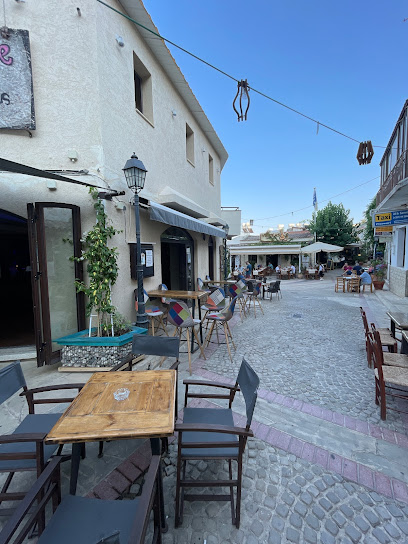
Local Phrases
-
- HelloΓεια σας
[Ya sas] - GoodbyeΑντίο
[Adio] - YesΝαι
[Ne] - NoΌχι
[Ohi] - Please/You're welcomeΠαρακαλώ
[Parakalo] - Thank youΕυχαριστώ
[Efharisto] - Excuse me/SorryΣυγνώμη
[Signomi] - How are you?Πώς είσαι;
[Pos ise;] - Fine. And you?Καλά. Εσύ;
[Kala. Esi;] - Do you speak English?Μιλάς Αγγλικά;
[Milas Agglika;] - I don't understandΔεν καταλαβαίνω
[Den katalaveno]
- HelloΓεια σας
-
- I'd like to see the menu, pleaseΘα ήθελα να δω το μενού, παρακαλώ
[Tha ithela na do to menou, parakalo] - I don't eat meatΔεν τρώω κρέας
[Den troo kreas] - Cheers!Υγεία!
[Ygeia!] - I would like to pay, pleaseΘα ήθελα να πληρώσω, παρακαλώ
[Tha ithela na plirosos, parakalo]
- I'd like to see the menu, pleaseΘα ήθελα να δω το μενού, παρακαλώ
-
- Help!Βοήθεια!
[Voithia!] - Go away!Φύγε!
[Fiye!] - Call the Police!Καλέστε την Αστυνομία!
[Kaleste tin Astinomia!] - Call a doctor!Καλέστε ένα γιατρό!
[Kaleste ena giatro!] - I'm lostΈχω χαθεί
[Eho hathi] - I'm illΕίμαι άρρωστος
[Eimai arrostos]
- Help!Βοήθεια!
-
- I'd like to buy...Θα ήθελα να αγοράσω...
[Tha ithela na agoraso...] - I'm just lookingΑπλά κοιτάω
[Apla koitao] - How much is it?Πόσο κοστίζει;
[Poso kostizi;] - That's too expensiveΑυτό είναι πολύ ακριβό
[Afto ine poli akribo] - Can you lower the price?Μπορείτε να μειώσετε την τιμή;
[Borite na meiosete tin timi;]
- I'd like to buy...Θα ήθελα να αγοράσω...
-
- What time is it?Τι ώρα είναι;
[Ti ora ine;] - It's one o'clockΕίναι μία η ώρα
[Ine mia i ora] - Half past (10)Μισή (10)
[Misi (10)] - MorningΠρωί
[Proi] - AfternoonΑπόγευμα
[Apoyevma] - EveningΒράδυ
[Vradi] - YesterdayΧθες
[Hthes] - TodayΣήμερα
[Simera] - TomorrowΑύριο
[Aurio] - 1Ένα
[Ena] - 2Δύο
[Dio] - 3Τρία
[Tria] - 4Τέσσερα
[Tessera] - 5Πέντε
[Pente] - 6Έξι
[Exi] - 7Εφτά
[Efta] - 8Οχτώ
[Ohto] - 9Εννιά
[Ennia] - 10Δέκα
[Deka]
- What time is it?Τι ώρα είναι;
-
- Where's a/the...?Πού είναι ένα/το...;
[Pou ine ena/to...;] - What's the address?Ποια είναι η διεύθυνση;
[Poia ine i diefthinsi;] - Can you show me (on the map)?Μπορείτε να μου δείξετε (στο χάρτη);
[Borite na mou dixete (sto charti);] - When's the next (bus)?Πότε είναι το επόμενο (λεωφορείο);
[Pote ine to epomeno (leoforeio);] - A ticket (to ....)Ένα εισιτήριο (για ....);
[Ena isitirio (ya ....);]
- Where's a/the...?Πού είναι ένα/το...;
History of Pissouri
-
Pissouri's history dates back to antiquity, with evidence of human settlement in the area from the Neolithic period. Archaeological finds, including pottery and tools, indicate that the region was inhabited by ancient civilizations, benefiting from its strategic location and fertile land.
-
During the Hellenistic and Roman periods, Pissouri thrived as a significant settlement. The remnants of ancient villas, baths, and temples scattered around the area testify to its importance. The town's proximity to major cities like Kourion and Amathus contributed to its prosperity during these eras.
-
In the Byzantine period, Pissouri continued to flourish, playing a vital role in the island's Christianization. Several Byzantine churches and chapels, adorned with beautiful frescoes, were erected. These religious structures highlight the village's significance in the spread of Christianity across Cyprus.
-
During the medieval period, Pissouri was under the rule of the Lusignan and Venetian kingdoms. The village's strategic location on the route from Limassol to Paphos made it a crucial stop for travelers and merchants. Fortifications and watchtowers were constructed to protect the area from invaders.
-
The Ottoman Empire took control of Cyprus in 1571, and Pissouri became part of the Ottoman administrative system. The village saw significant changes during this period, with the introduction of new agricultural practices and the construction of Ottoman-style buildings, some of which still stand today.
-
In 1878, Cyprus was leased to the British Empire, marking the beginning of the British colonial period. Pissouri, like the rest of the island, underwent modernization, with improvements in infrastructure, education, and healthcare. The British influence is still evident in the village's architecture and culture.
-
Cyprus gained independence from British rule in 1960, and Pissouri entered a new era of growth and development. The village has since become a popular tourist destination, known for its picturesque landscapes, traditional charm, and rich history. Efforts to preserve its cultural heritage have ensured that Pissouri remains a vibrant and historically significant part of Cyprus.
Pissouri Essentials
-
Pissouri is located on the southwest coast of Cyprus, midway between Limassol and Paphos. The nearest international airports are Paphos International Airport (approximately 30 kilometers away) and Larnaca International Airport (about 100 kilometers away). From either airport, you can take a taxi, rent a car, or use a shuttle service to reach Pissouri. Public buses also operate between major cities and Pissouri, although they may require a transfer.
-
Getting around Pissouri is relatively straightforward. The village is small enough to explore on foot, especially the charming Pissouri Bay area and the village square. For longer trips, taxis are readily available and can be booked in advance. Car rental services are also an excellent option for those wishing to explore the surrounding areas at their own pace. Public buses connect Pissouri to Limassol, Paphos, and other nearby towns, though services may be less frequent on weekends and holidays.
-
The official currency in Cyprus is the Euro (EUR). Credit and debit cards are widely accepted in hotels, restaurants, and shops in Pissouri. However, it's advisable to carry some cash for smaller establishments, local markets, and tips. ATMs are available in the village for cash withdrawals. Ensure you inform your bank of your travel plans to avoid any issues with card transactions.
-
Pissouri is generally a safe destination for tourists. However, as with any travel destination, it is wise to take standard precautions. Keep an eye on your belongings, especially in crowded areas, and avoid walking alone at night in unfamiliar places. There are no specific high-crime areas targeting tourists in Pissouri, but it's always best to stay vigilant and aware of your surroundings.
-
In case of emergency, dial 112, the European emergency number, for immediate assistance. Pissouri has a local police station and medical facilities, including pharmacies where you can purchase over-the-counter medications. It is recommended to have travel insurance that covers medical emergencies. For more severe health issues, the nearest hospitals are located in Limassol and Paphos.
-
Fashion: Do dress modestly, especially when visiting religious sites. Avoid wearing beachwear away from the beach. Religion: Do respect local customs and traditions. When visiting churches, cover your shoulders and knees. Public Transport: Do be polite and considerate to fellow passengers. Don't eat or drink on public transport. Greetings: Do greet people with a friendly 'Kalimera' (good morning) or 'Kalispera' (good evening). A handshake is also common. Eating & Drinking: Do try local dishes and accept food and drink offerings graciously. Don't refuse hospitality, as it is considered impolite.
-
To experience Pissouri like a local, visit the village square, especially on a Wednesday evening when the local tavernas often have live music. Engage with the locals, who are known for their hospitality and willingness to share stories about the area. Don't miss out on trying the local wine, especially from the nearby wineries. For outdoor enthusiasts, hiking the surrounding hills offers stunning views and a chance to see the local flora and fauna.
Trending Landmark in Pissouri
-
Pissouri Beach - Blue Flag
-
O'Vrakas Taverna Pissouri
-
Hylatio Tourist Village
-
Kastro Restaurant
-
Cyprus Diving Adventures
-
Cape Aspro Trail
-
Genesis Aphrodite’s Trail
-
Pissouri Bay
-
Pissouri Bay Divers
-
Himonas Apartments
-
Xenios Water Sports Pissouri Bay
-
Cape Aspro
-
Apostolos Andreas Church
-
Pissouri Beach
-
Pissouri Square Fountain
Nearby Cities to Pissouri
-
Things To Do in Kato Paphos
-
Things To Do in Paphos
-
Things To Do in Limassol
-
Things To Do in Troodos
-
Things To Do in Polis Chrysochous
-
Things To Do in Nicosia
-
Things To Do in Kyrenia
-
Things To Do in Larnaca
-
Things To Do in Famagusta
-
Things To Do in Ayia Napa
-
Things To Do in Protaras
-
Things To Do in Alanya
-
Things To Do in Beirut
-
Things To Do in Sidon
-
Things To Do in Batroun








